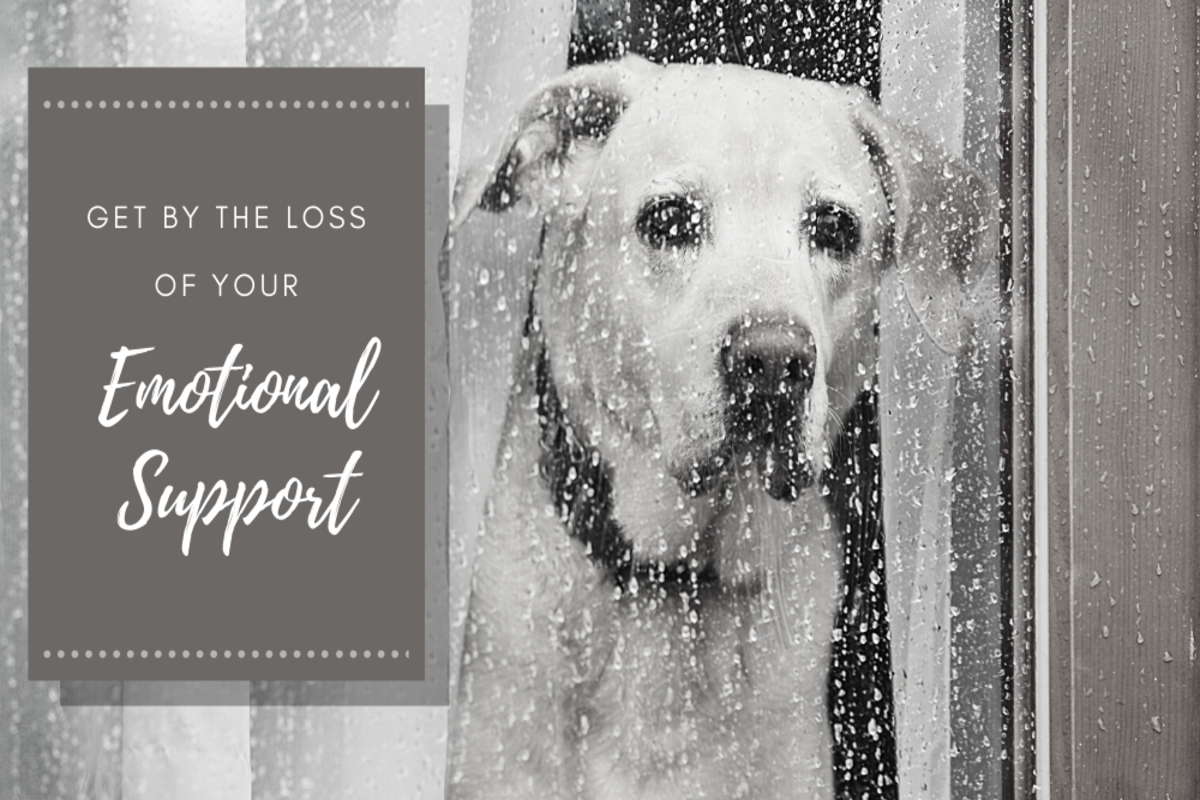How to Get By the Loss of an Emotional Support Animal?


Understanding Emotional Support Animal Grief
The grief over losing an ESA is real and deserves recognition. Emotional Support Animals offer more than companionship—they provide relief, stability, and emotional grounding during life’s hardest moments. When that bond is severed, it can feel as though a part of ourselves is lost too. This is especially true when considering how to deal with the loss of a pet dog or cat, as these companions often play a crucial role in our mental health.
Unlike regular pet loss, grieving an ESA can carry an added layer of emotional pain, as these animals play a crucial role in managing mental health conditions. Coping with losing a dog may require more than the typical grieving process; it calls for understanding, compassion, and a few practical tools to help you move forward.
Steps to Cope with the Loss of an Emotional Support Animal
1. Acknowledge Your Pain
2. Reach Out for Support
3. Memorialize Your ESA
4. Seek Pet Loss Counseling
5. Create a Memory Box
6. Donate in Their Name
How To Manage Grief After the Loss of an ESA?
1. Embrace New Routines
2. Find Ways to Honor Their Legacy
3. Avoid Rushing Into Another ESA Relationship
How Long Does Emotional Support Animal Grief Last?
How Do I Know if I’m Ready for a New ESA After Loss?
Deciding if you’re ready for a new Emotional Support Animal (ESA) after a loss is a personal journey that requires self-reflection. Here are key considerations regarding when to Consider a New ESA:
- Assess Your Emotions: Determine if memories of your previous ESA bring comfort or pain. Ensure you’re ready to open your heart to a new companion.
- Evaluate Responsibilities: Consider if you’re prepared for the daily care, training, and nurturing that a new ESA entails.
- Examine Your Motivations: Reflect on whether you seek genuine companionship or are trying to fill a void. If it’s the latter, you may need more time to grieve.
- Consider Lifestyle Changes: Think about how a new ESA might affect your daily routine and if you’re prepared to create new memories rather than just recreate past ones.
- Take Your Time: Don’t rush your decision; allow yourself the necessary space to heal.
- Trust Your Instincts: When you feel a sense of peace and readiness, you’ll know it’s the right time to welcome a new ESA, honoring both the new bond and your previous companion’s memory.
How to Help Children Cope with the Loss of an Emotional Support Animal?
Losing an Emotional Support Animal can be especially challenging for children, who may not fully grasp the concept of death or permanent loss. Here are some effective strategies for parents to support their children during this difficult time.
Tips for Explaining ESA Loss to Kids
When discussing the loss of an ESA with children, it’s important to use age-appropriate language. Younger children may benefit from simple explanations, while older kids can handle more detailed discussions. Here are some tips:
- Be Honest Yet Gentle: Clearly explain that their ESA has passed away and won’t be coming back. Use terms they can understand and avoid euphemisms that may confuse them.
- Encourage Rituals and Memories: Suggest creating a memory box or scrapbook filled with photos and mementos of their ESA. This can help children celebrate their pet’s life and process their grief in a tangible way.
- Foster Open Dialogue: Create a safe space for children to express their feelings. Encourage them to ask questions about death and share their emotions without judgment. This open communication helps children feel supported and understood.
When to Seek Professional Help for ESA Loss?
For some, the grief that follows the loss of an ESA can become overwhelming, leading to what is known as complicated grief. This form of grief may manifest as prolonged sadness, anger, or withdrawal from activities they once enjoyed. Here are signs to watch for:
- Persistent Sadness: If a person continues to show signs of deep sadness for weeks or months, it may be time to consider professional help.
- Difficulty Functioning: If grief interferes with daily life, such as school performance or social interactions, seeking support is essential.
- Physical Symptoms: Complaints of headaches, stomachaches, or changes in appetite may signal that a person is struggling to cope with their emotions.
How Therapy Can Support ESA Grief?
Therapy can be a valuable resource for both children and adults coping with the loss of an ESA. Specific techniques that may help include:
- Cognitive Behavioral Therapy (CBT): This approach helps individuals identify and change negative thought patterns associated with grief. A trained therapist can guide children through CBT techniques to process their emotions more effectively.
- Mindfulness Practices: Mindfulness can aid in managing overwhelming feelings. Techniques such as deep breathing or guided imagery can help children stay present and reduce anxiety about their grief.
- Support Groups: Many therapists and community organizations offer support groups specifically for those grieving pet loss. Connecting with others who share similar experiences can provide comfort and validation.
The Bottom Line
Coping with the loss of an Emotional Support Animal is a personal journey filled with emotional challenges. Acknowledge your grief, seek support, and give yourself time to heal. The bond you shared with your ESA is unique, and it’s important to honor that memory while understanding your feelings.
When you’re ready to welcome a new companion, reflect on your emotional readiness. Look for signs of inner peace and openness before moving forward.
With patience and self-compassion, you can honor your past while embracing new possibilities, celebrating the joy that a future companion will bring.
Frequently Asked Questions (FAQs)
How Can I Create a Healing Environment at Home After the Loss of My Emotional Support Animal?
What Are Some Self-Care Tips to Help Me Cope with the Loss of My Pet?
How Do I Handle the Emptiness After Losing a Support Animal?
Can Pet Loss Counseling Help Me with ESA Grief?
How Can I Keep My ESA’s Memory Alive After Loss?
Are There Support Groups Specifically for ESA Grief?
How Can I Help My Other Pets Adjust to the Loss of Our ESA?
Can Journaling Help Me Cope with ESA Loss?
What Are Some Alternatives to ESA Companionship After Loss?
How Can I Talk to My Workplace About Grieving My ESA?
Post Author
Prince Sharma
Related Articles
Fast ESA Letter vs. Real ESA Letter: Which ESA Service is Right for You?
Fast ESA Letter vs. Real ESA Letter: Which ESA Service is Right for You?Both Fast ESA Letter and Real ESA Letter provide ESA and PSD letters, but Fast ESA Letter truly stands out for its authenticity, trusted customer base, dedicated support, and...
Fast ESA Letter vs ESA Pet: Which Service Should You Trust?
Fast ESA Letter vs ESA Pet: Which Service Should You Trust?Both Fast ESA Letter and ESA Pet connect you with licensed professionals, but only one consistently delivers on speed, pricing, and support. If you want an ESA letter without delays, hidden...
Fast ESA Letter vs. My ESA Doctor: Which ESA Service is Right for You?
Fast ESA Letter vs. My ESA Doctor: Which ESA Service is Right for You?Fast ESA Letter and ESA Doctors both facilitate access to licensed mental health professionals for ESA letters. Each service has its own approach, and understanding the differences...
Live Free with Your ESA!
An ESA Letter Unlocks Freedom!





